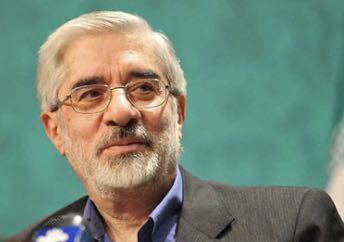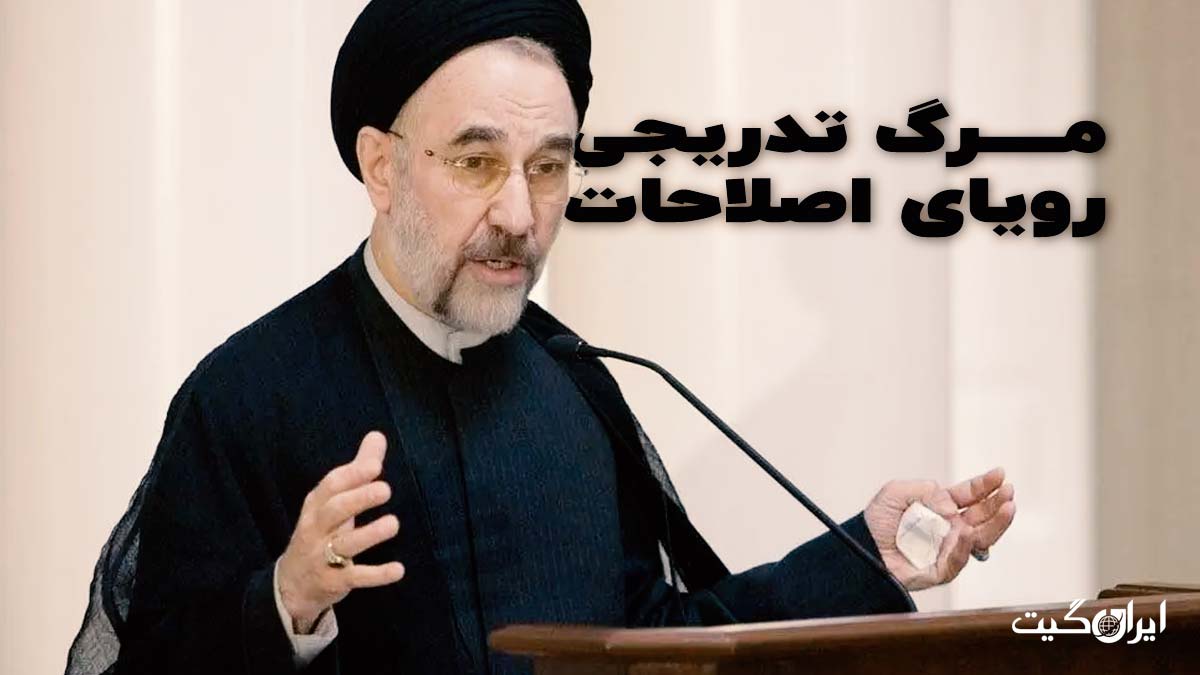The Gradual Death of the Dream of Reforms
The Gradual Death of the Dream of Reforms: According to Iran Gate, Mohammad Khatami, the former president of Iran and the leader of governmental reformists, implicitly admitted to the failure of reforms in a message on the anniversary of the 1979 revolution. He acknowledged that people have the right to be disappointed. Nonetheless, he offered suggestions, even if repetitive, for improving the situation, stating that implementing them does not necessarily require a change or amendment of the constitution, although that is certainly necessary in its place, but rather by returning to the spirit and even the text of the current constitution, all these reforms are possible.
In his message, Khatami stated that we should not be confined by terminology or natural or artificial divisions. He spoke of the division among reformists, pointing out the commonalities between them and some individuals from the principlist camp, and also those affiliated with recognized or unrecognized factions. He called for the unification of scattered forces who seek structural and behavioral changes but do not recommend overthrowing, especially considering the risks it poses to the people and the country.
Khatami Stands Behind Mir Hossein

Khatami’s message was released a day after Mir Hossein Mousavi, from his 12-year house arrest, sent a message calling for the necessity of changing the constitution and forming a constituent assembly.
Mir Hossein Mousavi’s statement faced sharp reactions from pro-government media in Iran, accusing him of crossing the line from the Islamic Republic. In his recent statement, Mousavi emphasized that implementing the constitution without compromise, as a slogan hoped for 13 years ago, is no longer effective, and a step beyond that must be taken.
However, Mohammad Khatami, in his detailed message published on his official Telegram channel, said that reformism in the experienced manner, if not impossible, has at least hit the solid rock of a dead end, and people have the right to be disappointed with it just like with the ruling system.
He described the method of reformism as requesting reforms from higher authorities who have shown that they do not even hear it, let alone reflect on it and act upon it, and also participating in the power arena at any cost, where supposedly outsiders are given no chance to participate.
Khatami admitted that the path of reform-seeking and reformism in the former manner has reached a dead end, but he said that reformism has more capacity than reformists in the conventional sense, and he expressed hope that these other forces would make their voices heard in society and governance, perhaps, and indeed perhaps, compelling the government to change its approach and accept reforms.
After the protests of December 2017, there has been significant criticism against reformists and Mohammad Khatami himself, with even some supporters of this political movement accusing him of compromise and silence in the face of security pressures. They have taken a more critical stance against the government, with some considering the Islamic Republic to be irreformable. However, the division among reformists has a longer history.
On the eve of the 2009 presidential election, Mohammad Khatami announced his candidacy, stating that only one of him or Mir Hossein Mousavi would run. Shortly after, Mir Hossein Mousavi’s unexpected candidacy announcement led to Khatami’s withdrawal and was perceived by observers as a deep ideological divide between these two political leaders. Now, it seems the statements of Mir Hossein Mousavi and Mohammad Khatami have two different addresses and approaches.
Mousavi, mentioning various economic crises, inefficiency, legitimacy, and others, wrote that the ‘crisis of crises’ is the contradictory and unsustainable structure of the country’s fundamental system. According to Mousavi, Iran is in need of and ready for a fundamental transformation, whose lines are drawn by the ‘Woman, Life, Freedom’ movement. He wrote that the same right that formed the foundation of the people’s revolution in 1979 and the current constitution is also evident for future generations.
Khatami’s Proposals Addressed to the Government
In his recent message, Seyed Mohammad Khatami described his proposals as benevolent and wrote, ‘In my opinion, reforming both the structure and the approach and behavior is the least costly and most beneficial way to exit the crisis.’
Mohammad Khatami warned about the ominous shadow of a bipolarity over society, writing, ‘On one hand, preserving the system is considered the most important obligation, and if there is any flaw, it is attributed to the approach and performance of outsiders. On the other hand, everything is portrayed as dark and horrifying.’
In this statement, the head of the reformist government presented 15 proposals addressed to the government, but he emphasized that these proposals for managing the country’s affairs are not made with the intention of returning to power but to open a path towards crisis management.
It is worth mentioning that two years ago, on the eve of the presidential elections, Mohammad Khatami wrote a 37-page letter to Ayatollah Khamenei, stating that he has never been against the revolution, leadership, and governance.

